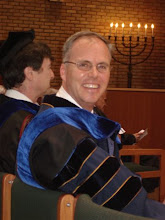Love or Power?
Or Why Theological Formation?
I’m reading a book right now called Warriors of God: Richard the Lionhart and Saladin in the Third Crusade. I’ve always been fascinated by the Crusades perhaps because it is such an amazing example of how Christian faith can become so terribly misconstrued. The author, James Reston Jr., tells the story of the slow process whereby the gospel of Jesus and the cross was transformed into a religion of violence. The Crusaders loved and worshipped a God who they believed called for the death of the heathen. They transformed the cross into a sword. They chose a religion of power rather than a gospel of love. Power is seductive, self-sacrificial love is, well, self-sacrificial love. Who enjoys self-sacrifice?
Muslims still resent Christians for the Crusades. When the Crusaders finally conquered Jerusalem in the summer of 1099, they virtually wiped out every living creature in the city; both the Jews and Muslims. They wept tears of joy and sang the Te Deum afterward. Saladin the Muslim displayed a more Christ-like compassion later when he took the city back again and allowed virtually all the occupants to go for a fee. Several thousand of those unable to pay were sold into slavery but the rest were allowed to leave the city. The Bishop of Jerusalem scraped the gold off the walls of the temple, not to pay the fee for those would could not pay for theselves, but to preserve the riches for the church. Many poor could have been spared, but as a consequence of the bishop’s heartlessness, they were sold into slavery.
How can the gospel be so misconstrued? What lessons do past abuses of power teach today? Power is as seductive today as it was in 1099. In the gospel, we encounter a God who has chosen the way of self-sacrificial love rather than violence. The cross is not just a symbol. It is a reminder of God’s choice to take the brunt of human wickedness and its punishment to let the guilty go free. We need to see this for what it is: a rejection of violence and a choice for love. To choose power is to reject this gospel.
But the role of the church is to do more than to teach the cross in terms of history and theology. We are called to do the more difficult work of shaping our lives by the gospel. Every choice for violence is a rejection of the spirit of the Savior. Spiritual formation takes seriously the task of shaping each believer into the image of God’s self-giving love. This is the task Jesus left for the church. This is the meaning of Jesus’ command to his disciples to take up their cross and follow. The Crusades remind us of how tragically the church can go astray. Similar dangers remain whenever Christians choose something other than the narrow way of Jesus.
Wednesday, October 14, 2009
Love or Power
Labels:
Christian anti-Semitism,
Christians,
Crusades,
God,
Gospel,
Love,
Muslims,
Power,
Theological Education
Subscribe to:
Comments (Atom)
